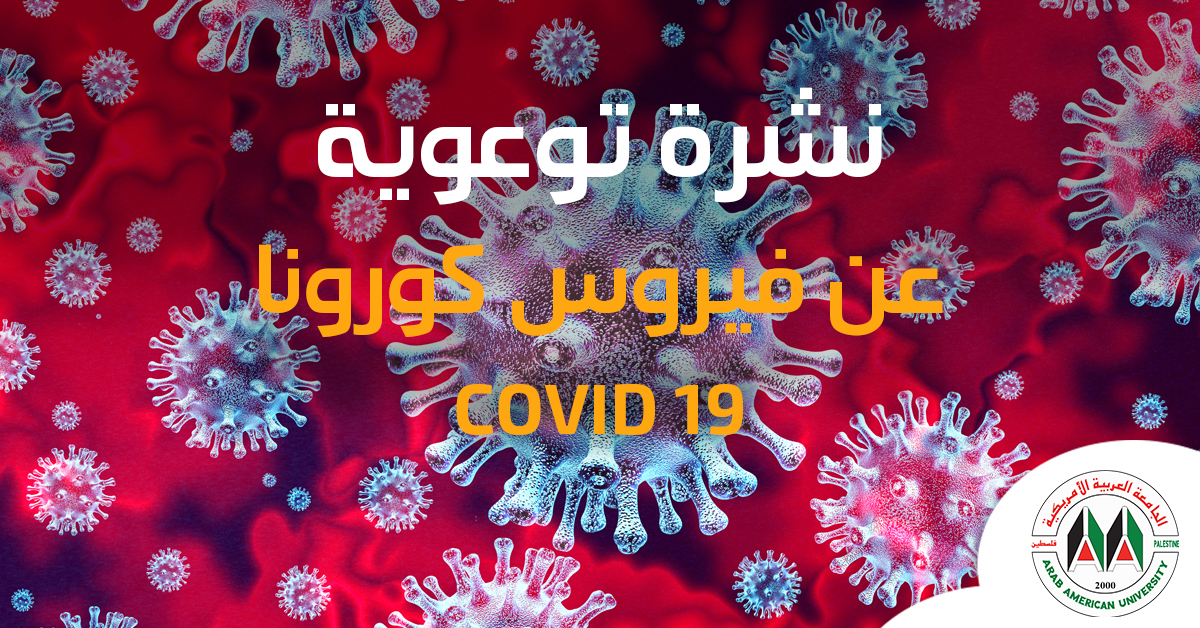
-
What is the Coronavirus Disease COVID-19?
Coronavirus Disease COVID-19 is a new breed of Corona Virus that previously never affected or spread between human beings, before it started in Wuhan, China in December 2019.
-
Can human be infected by COVID-19 from an animal resource?
Detailed investigations concluded that SARS coronavirus was transferred from a civet cat to human in China in 2002; on the other hand MERS had transferred from camels to human in KSA in 2012. Also many breeds of coronavirus can be transferred between animals without affecting people. It is expected to discover new breeds of the virus as the technology has developed around the world.
-
What are the symptoms of being infected by Coronavirus?
Symptoms differ from one virus to another, but the most common symptoms are: respiratory symptoms, fever, coughing, shortness of breath and difficulty breathing. In severe cases, it may cause pneumonia, severe acute respiratory syndrome, kidney failure or even death.
-
How long is the incubation for COVID-19?
At least 14 days
-
What are the infection ways for COVID-19?
The disease can be transmitted from one person to another through drizzles that comes out of the nose or the mouth of the infected person when he coughs or exhales. It also can be transferred when a person touches his eyes or nose or mouth with his hands dirty from a surface that was already contaminated with the drizzle of a sick person.
-
Do I have to wear a mask to prevent myself?
People with no respiratory symptoms like coughing do not need to wear the medical mask. The World Health Organization recommended those who have the COVID-19 symptoms and the ones who take care of an infected person and have symptoms like fever or coughing to wear the mask. It is also very important for people working in the healthcare sector and people who take care of an infected person (either in houses or in the medical centers) to wear the mask.
-
How long can the virus live on the surfaces?
Couple of hours and can sometimes reach to some days. It differs according to the different circumstances (like the surface type, temperature and humidity).
-
Is it safe to receive a package from an infected country?
It is not common for a person to be infected from a package or transferred goods, and the risk of being infected with COVID-19 from a package that was transferred under different conditions and temperatures is low.
-
Does COVID-19 affect specific people more than others?
COVID-19 can affect anyone any age and both genders. Elderly people and people of chronic medical diseases such as asthma, diabetes and heart diseases are more likely to have medical complications if they have a viral infection.
-
Is there a vaccine for the COVID-19?
When a disease first appears, there will be no vaccines for it until they prepare it. It might take several years before reaching to a proper vaccine.
-
Is there a treatment for the COVID-19?
Until now there is no treatment for COVID-19, but many of the symptoms can be treated, so this depends mainly on the clinical status of the patient. Support care for infected people might be really effective.
-
What can we do to prevent ourselves from this virus?
Recommendations advice people to limit the chance of being infected or transmitting the disease by keeping the hands clean, respiratory hygiene, healthy food, and avoid getting close to any person that has the symptoms like coughing and sneezing.
-
Are the healthcare workers more vulnerable to having COVID-19?
Yes, the healthcare workers can be infected in this virus more than other people as they deal with infected cases really close. World Health Organization recommends healthcare workers to protect themselves by using the best prevention ways to protect themselves.
-
What are the World Health Organization recommendations for countries?
The World Health Organization encourages all countries to keep up with the tests for this virus and to be accurate in presenting any unusual things, or cases of pneumonia, and to report COVIS-19 cases to the organization either confirmed or suspected cases. WHO also encourages countries to keep enhancing the emergencies according to the international health regulations (2005).










